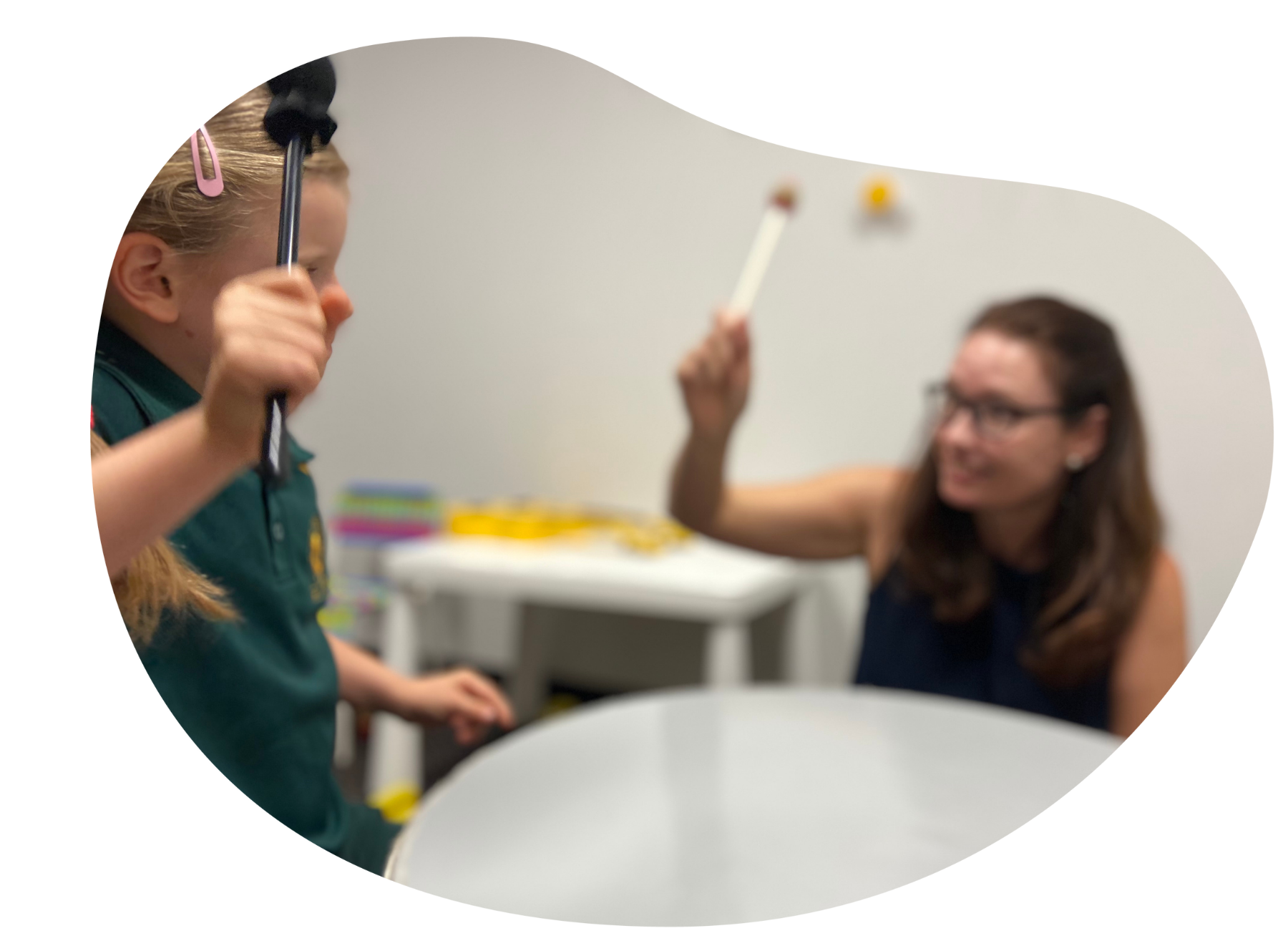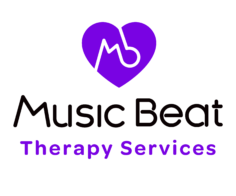
Music Therapy is the planned and creative use of music to attain and maintain health and well-being. It is a research-based practice and an established health profession that incorporates a range of music making methods within and through a therapeutic relationship to address physical, emotional, cognitive, communicative and social needs of individuals.
Music Therapy differs from musical entertainment or music education in that it uses music to achieve specific therapeutic outcomes.
Music Therapy is used in a variety of sectors including health, community, aged care, disability, early childhood, and private practice.
For a simple idea of what Music Therapy is, here’s a link to the Australian Music Therapy Association as they explain it very well.
What is a Music Therapist?
A Registered Music Therapist (RMT) is a person who has completed tertiary training in music therapy and is registered as a practitioner with the Australian Music Therapy Association (AMTA).
An RMT is a person who is passionate about combining music and therapy to support you to meet your health and well-being goals.
An RMT has completed an undergraduate degree in Music or Music Therapy. Most have completed an undergraduate degree in Music and a Master’s degree in Music Therapy. This means they are highly competent musicians, clinicians and therapists, who have studied a range of subjects covering music therapy, music practice and theory and developmental psychology across the lifespan.
To maintain their registration with the AMTA an RMT must maintain their skills through ongoing professional development as approved by the AMTA and abide by the AMTA Code of Ethics and Code of Conduct at all times.
What is Neurologic Music Therapy?
Neurologic Music Therapy (NMT) is the therapeutic application of music and neuroscience on cognitive, motor, and sensory functions and development.
NMT helps with body awareness and regulation. It can help align breathing rate, neural pathways, heart rate, which helps coordinate motor planning and self-regulation.
NMT can help create new and/or different neurologic pathways and centres in the brain.
NMT differs from traditional music therapy in that it focuses specifically on music and rhythm’s physical effect on the brain and brain connections; while traditional music therapy uses a psychosocial (emotional, physical, mental) approach to therapy.
What are the outcomes of Music Therapy?
As music therapists, we use music as our main intervention tool.
Music is a multi-faceted tool and research has shown that it targets many parts of the brain at once, which means we can use it to support a range of developmental outcomes including:
- Language development: through structured and repetitive phrasing which help participants learn speech sounds, vocabulary, sentence structure, and turn-taking skills
- Cognitive development: using processes such as memory, attention, and problem solving in a creative and social environment
- Motor skills: playing instruments that engage fine and gross motor tasks through the motivating medium of music
- Sensory stimulation: providing a rich sensory experience through hearing, touch, and body awareness
- Creativity and self-expression: encouraging participants to explore and express themselves in their own capacity

Why music therapy?
To be human is to be musical.
That is to say all humans have the capacity to experience music.
Human brains love the organisation of music and the central nervous system loves the predictability that music provides.
Music therapy taps into this neurology of music and the unique ways that our human brains and bodies respond to music listening and music making to offer interventions that improve our overall wellbeing and functional capacities.
Music is a whole-brain activity and one that most people enjoy. This means there are many benefits to participating in music therapy sessions.
Music therapy allows any person to work from a strengths based model, as everyone can participate and experience music in their own way and at their own pace.
It also means that individuals can make music with us in ways that are adapted to suit their individual needs and abilities, and ways that tap into their strengths and abilities.
When a participant feels confident in their abilities they are more likely to accept challenges and this allows our therapists to encourage them to participate in complex musical activities that focus on the whole person.
In other words, the participant can meet a number of developmental and functional needs at the same time rather than separating these into “clinical” areas.
